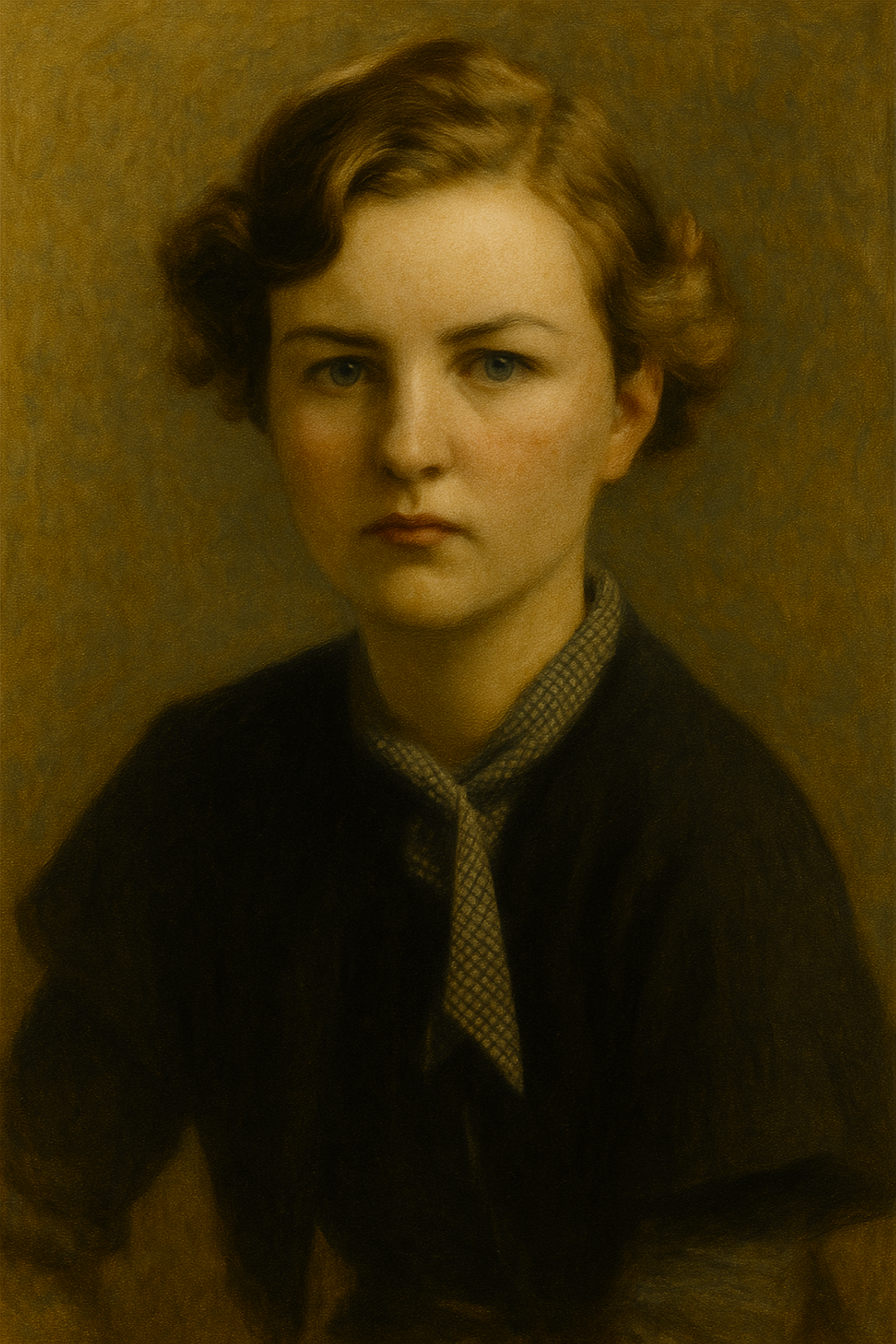
Jessica Mitford: A Communist, a Crusader and Aristocratic Muckraker.
Share
Jessica “Decca” Mitford was the family firebrand — a woman born into aristocracy who spent her life gleefully setting the class system on fire. She was brilliant, fearless, hilarious, and utterly unwilling to play the role she was born to play. Instead of fox hunts and tea parties, she chose protest marches and subpoenas. While her sisters flirted with fascism, Jessica eloped with a cousin of Winston Churchill and declared war on injustice — all before her 25th birthday.
She was born on September 11, 1917, and for those of us who share that birthday (including the author of this blog), she remains something of a patron saint of rebellion.
A Rebel from the Start
Decca was the sixth of seven Mitford children, and from early on, it was clear she was different. Her childhood was marked by the same eccentricities as her siblings — no formal education, an elaborate family slang, and a household steeped in the British upper class. But while her sister Unity was papering her bedroom with swastikas, Jessica was devouring books on socialism and dreaming of revolution.
She and her sister Unity shared a bedroom as teenagers, and the ideological split was literal: they drew a chalk line down the middle. Unity's side was decked with Nazi insignia and portraits of Hitler; Decca’s side bore red flags, socialist slogans, hammers and sickles. The room, like the sisters, was a powder keg.
Jessica’s ‘Running Away’ Fund
Jessica had been planning her escape from aristocratic life long before she ever set foot in America. As a teenager, she secretly opened a bank account and began saving small sums of money from birthday gifts and allowances. She called it her 'Running Away Fund,' and it became her private symbol of independence. She later said it made her feel 'rich and powerful,' even though the total amount was modest.
Her chance to escape came in 1937 when she eloped with Esmond Romilly, Winston Churchill’s leftist nephew and a fellow anti-fascist. The two ran off to Spain, where Romilly had gone to fight in the Spanish Civil War, and then settled in the East End of London, far from the country estates of her youth. They lived in poverty — washing in a tin basin, sharing their home with rats — and Jessica loved it. For the first time, she felt like she had earned her life.
Pictured below: Jessica with her first husband Esmond (before they were married).

A New Life in America
Jessica and Esmond first arrived in the United States in late 1939, just after World War II had broken out in Europe. They moved to New York City, who had fought in the Spanish Civil War and was then working as a journalist. He later enlisted in the Royal Canadian Air Force. Although the U.S. had not yet entered the war, Decca and Esmond were determined to build a new life away from the aristocratic world she had rejected. They lived in New York, Washington D.C., Florida, and California, often scraping by with odd jobs, including running a bar. It was a hard but exhilarating start to a life built entirely on their own terms.
Personal Loss, Political Fire
Jessica and Esmond had a daughter, Julia, who tragically died of measles at just four months old. Jessica had never been exposed to the disease in her aristocratic isolation, so she hadn’t developed the antibodies to protect her child. The loss was devastating — and galvanizing. It was, Jessica later said, one of the defining moments of her life. She became obsessed with exposing inequality in all its forms — economic, racial, and medical.
During World War II, Romilly joined the Royal Canadian Air Force and was killed in action in 1941. Widowed at just 24, Jessica made the choice not to return to England, but instead to stay in America, where she would spend the rest of her life fighting injustice with her pen, her voice, and her brilliant sense of humor.
A Communist in America
In the 1940s, Jessica joined the American Communist Party, seeing it as the only political force genuinely advocating for civil rights, labor protections, and economic justice. She later became disillusioned with Stalinism and left the party but never stopped believing in the importance of activism.
Below: Jessica in America (c. 1960s), her professional muck racking career in full bloom.

Robert Treuhaft, Activism and McCarthyism
After the tragic death of Esmond in World War II, Jessica eventually met and married Robert Treuhaft in 1943, a prominent civil rights attorney and fellow leftist. Treuhaft was deeply involved in the labor movement and the fight for racial justice in America, and together, he and Jessica formed a political and intellectual partnership rooted in activism. They had one son, Benjamin Treuhaft, who is still alive today. Benjamin took a different path from his famous parents and became a piano tuner by trade — even running a non-profit called Piano Finders, which delivered restored pianos to schools and communities in need around the world.
Her political work in the U.S. was tireless: organizing, campaigning, protesting. She worked with civil rights lawyers, anti-racist activists, and labor unions. She stood up to McCarthyism during the Red Scare in the 1950s and was famously called before the House Un-American Activities Committee.
The American Way of Death
Jessica’s career as a journalist and author began in earnest in the 1950s and exploded in 1963 with the publication of her most famous work: The American Way of Death. The book was a savage, hilarious, and unrelenting exposé of the American funeral industry that revealed how grieving families were manipulated into spending thousands on overpriced caskets, embalming, and unnecessary services. It was a bestseller and an instant scandal.
Later Years and Last Laughs
Jessica never lost her sense of mischief. She smoked, swore, laughed loudly, and maintained a healthy contempt for power until the end. In her later years, she remained politically active and continued to write — including a memoir titled A Fine Old Conflict about her time in the Communist Party. She once told an interviewer, “You may not be able to change the world, but at least you can embarrass the guilty.”
The Hon Who Roared
Jessica Mitford was many things: a runaway aristocrat, a grieving mother, a widow, a political radical, an assault survivor, a bestselling author, and one of the funniest, fiercest women of the 20th century. She made no apologies for her beliefs, and she never stopped fighting — or laughing.
Jessica died on July 22, 1996, at the age of 78 as a respected writer, activist, and icon. At her funeral, friends read from her works, and her ashes were scattered near San Francisco.
Jessica Mitford Reading List
A note from Elliott: Hello! If you click on one of the links below to purchase, I may earn a small commission (literally pennies). It doesn’t cost you a thing, but it truly helps support the time, research, and storytelling that go into bringing these fascinating lives to light — through words, art, and a lot of late-night tea. Thank you for supporting a digital creator. /EB
Hons and Rebels – Her brilliant memoir of rejecting aristocracy and embracing rebellion.
The American Way of Death – A muckraking exposé of the funeral industry.
Decca: The Letters of Jessica Mitford – A sweeping chronicle of her life through letters.
***
Take a moment to explore our new portrait of the aristocratic 'rebel with a cause,' Jessica Mitford, inspired by the modern post-war style with an expressionist edge, and part of our exclusive *Mitford Series* collection.
For more on the Mitford family, visit our reading list here.
